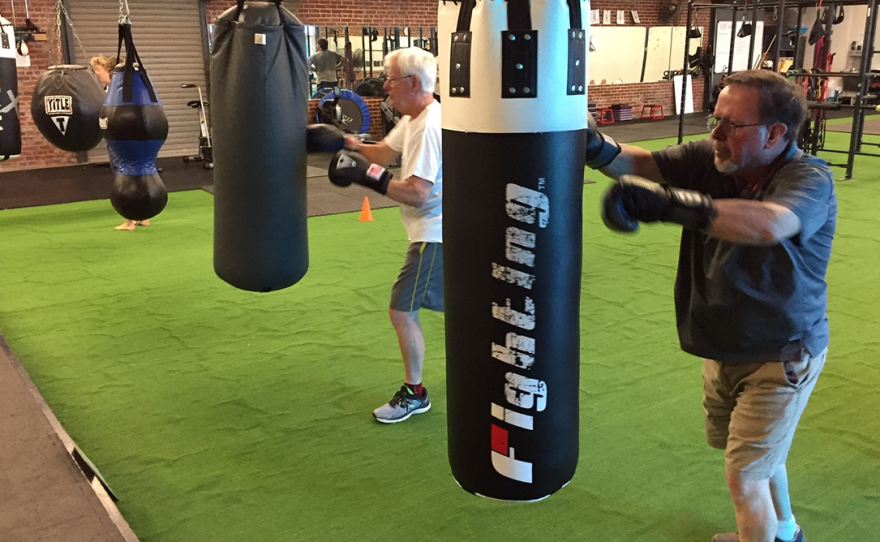"You get fit, but you don't get hit." That's the way David Rispress of 9 Rounds Gym in Forest Acres describes the workout plan for Rock Steady Boxing. It's a non-contact program of boxing exercises for people with Parkinson's Disease that has seen steady growth since its introduction around 2006.
Rock Steady Boxing was created by an Indiana lawyer who was diagnosed with Parkinson's and who found, after much research, that forced, intense exercise delayed the effects of the disease. It worked for him, said Elise Matthews of Kore Wellness gym in Columbia, so he started to spread the program across the country to help others as it had helped him.
"It's very empowering," said Matthews of the program. "It gives you a focus to direct some of your frustrations with the disease. So you come in here and you hit really hard on the bags and you get some of that frustration out. But at the same time, you're also doing some great things for the inside of your body to help manage the effects of the disease."

Jim Whittle, who goes by the nickname "Jet" at 9 Rounds, said he loves what the program has done for him: "It's definitely improved my wind, my breathing. I don't know how to judge whether it's slowed or stopped the progression of my Parkinson's, I can't judge that. But I feel like it will work. And my blood pressure has dropped."
Rispress also has been pleased with Whittle's progress under Rock Steady. "What you see with Jet, when he first came here, he could barely make it to round five....now, he comes through all the rounds and he's more functional." Referring to Rock Steady Boxing's reported delaying of the effects of Parkinson's, Rispress added, "it also creates (physical) balance, because a lot of the elements that are used in boxing are the same elements that are needed for (dealing with) Parkinson's."
"There's so many things when you have Parkinson's that you don't realize that you're not able to do as well as you used to...but slowly it creeps in," said Jan "Satchmo" Satcher, who is coached by Rispress. "I think it's helping me. I think I have a little more stamina, and I'm hoping it's helping with my balance."
As a team of boxers punched bags nearby, Matthews listed some of the changes she's seen in Parkinson's patients who do Rock Steady Boxing: "Individuals who used to come in with walkers, now don't use their walkers anymore. We've seen people who would come in and they would need help standing up out of a chair. Now they can get out of a chair by themselves. So it's really been neat to see the increases in ability as well as confidence in these boxers."
Elizabeth Jones has learned a lesson at Matthews's gym to pass to fellow Parkinson's patients. "Keep moving. Don't sit, don't give in to not being able to do something. Do it, no matter how minute or aggressive it might be. Once you get into that sedentary lifestyle, it's hard to get it back. Just keep moving."
Satcher agreed, saying Rock Steady is "going to keep me normal. I'm not going to give in to Parkinson's. I'm going to fight it with everything I have."



